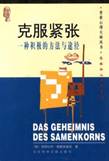网址:http://m.1010jiajiao.com/timu3_id_2443347[举报]
One day, there was a blind man called John sitting on the bench(长条椅)with a hat by his feet and a sign that read,“I am blind. Please help me.”
A creative publicist(广告员) named Tom was walking by the blind man and stopped to see that the man only had a few coins in his hat. He put a few of his own coins in the hat. Without asking for permission, he took the sign, turned it around and wrote a new message. Then he put the sign by the feet of the blind man, and left.
Later that afternoon the publicist returned to the blind man and noticed that his hat was almost full of bills and coins. The blind man recognized(认出,识别出)his footsteps and asked if it was he who had changed his sign. He also wanted to know what the man wrote on it.
The publicist said,“I just wrote the message a little differently.”He smiled and went on his way.
The new sign read,“Spring has come, but I can’t see anything.”
1.What’s the blind man’s name?
A.Tom. B.John.
C.Tony. D.Sorry, I don’t know.
2.Who wrote a new message?
A.The blind man. B.The teacher.
C.The publicist. D.The farmer.
3.How did the blind man recognize the publicist?
A.By his sign. B.By his footsteps.
C.By his voice. D.By his coins.
4.When did the story happen?
A.In spring. B.In summer.
C.In autumn. D.In winter.
5.What can we learn from the passage?
A.Publicists are always friendly and helpful.
B.We can get more money by changing a sign.
C.The blind man was very stupid, so he had little money.
D.The power(力量)of language is great.
查看习题详情和答案>>
阅读下面短文,掌握其大意,然后从左面的五个选项中,选择恰当的句子还原到文章中,使短文意思通顺、结构完整。
“We’re reading the first part of a book that doesn’t end…”1. But I have always liked them because they always remind us that the future can be anything we want to make it.We can make it anything that we can imagine.
2. If we plant good seeds(种子),we have good products.If our seeds aren’t good,we get useless products.3..
I want the future to be better than the past.4. We all should care about the future, because that’s where we will spend the rest of our lives.
The past is gone.5. The future is before us.It is changeable.Everything we do will affect it.Each day brings with it something new in our homes and in our business,but only if we realize them.We’re just at the beginning of everything we study.
A.We are all like farmers.
B.I don’t know who wrote these words.
C.There is nothing we can do to change it.
D.If we plant nothing at a11.we get nothing at all_
E.I don’t want it filled with mistakes that happened many times before.
查看习题详情和答案>>
I’m writing to you from America. You don’t know how happy I am. I made many new friends here. They are very helpful. Last week I got a fever and had to stay in bed for three days. They helped me a lot with my lessons. Cathy is one of my good friends at school. She has a round face with a pair of glasses. She is two months older than I am, but a little shorter . She works hard and is good at all her lessons. She often helps me with my English. We like talking to each other at lunchtime. After school, we always go home together because we live in the same street.
Sometimes we take a dancing lesson for half an hour before we go home. She dances better than any other student. She wants to be a dancer when she grows up. At the weekends, Cathy usually goes swimming. I sometimes go swimming with her. I think it’s a good way to keep healthy. We always have a good time.
Write soon.
Love
Lanlan
小题1:Who wrote the letter?
A. Lanlan’s mom B. Lanlan C. Cathy
小题2: Where is Lanlan now?
A. In America. B. In China. C. At school.
小题3: Does Cathy wear glasses?
A. We don’t know. B. No, she doesn’t. C. Yes, she does.
小题4:What does Cathy want to be when she grows up?
A. A dancer. B. A singer. C. A teacher.
小题5: Cathy is Lanlan’s ______.
A. teacher B. student C. friend
The words “Auld Lang Syne” mean “old long since”. No one knows who wrote the poem first. However, a version (版本) by Scottish poet Robert Burns was published(出版)in 1796. The words and the music we know today first appeared in a songbook three years later.
The song is played in the United States mainly on New Year’s Eve. The version you are hearing today is by the Washington Saxophone Quartet. As we end our program with Auld Lang Syne, I would like to wish all our radio friends a very Happy New Year! This is Buddy Thomas.
【小题1】This passage is from ___________.
| A.a newspaper | B.a magazine | C.a TV program | D.a radio program |
| A.Robert Burns | B.the Washington Saxophone Quartet |
| C.Buddy Thomas | D.The passage doesn’t tell us. |
| A.in 1790 | B.in 1793 | C.in 1796 | D.in 1799 |
I am a professor of sports and exercise so I often deal with nervousness in my research with sports people. Actually, most people experience nervousness at some time or another. 
If you are feeling anxious, my advice is to first find the cause or causes. Make s list of those things that are making you nervous and work out which ones you can do something about. Focus all of your efforts on managing the causes that you can control.
Most people cannot tell the difference between controllable(可控制的) and uncontrollable causes, so things they can’t control become a big reason for nervousness. Dealing with this is very important if people want to keep a healthy mind.
Simply try to accept the uncontrollable causes of nervousness. You might be worried about the weather on a big day, an accident or an attack on the train, or perhaps just things that other people are doing at work. The results may be very important but there is still no use worrying because you can’t control any of these things. Accept that you can’t control everything. Once you understand this, it becomes easier not to worry.
If a situation, such as swimming, is causing you to be anxious, try to face it as often as possible so that you can get used to it.
It can often help to think about yourself doing the thing that makes you nervous—then close your eyes and imagine it going well. Imagine how the flight or job interview is going to happen so that you can get used to it. This will help you understand that the thing you fear most is probably not going to happen.
【小题1】Who wrote this passage?
| A.A reporter. | B.A sportsman. | C.A patient. | D.A professor. |
| A.most are not very important |
| B.they are not the real causes of the problem |
| C.they cannot be controlled by people |
| D.it’s better to deal with one cause at a time |
| A.Go swimming often to get used to it. |
| B.Avoid going to the swimming pool. |
| C.Find a swimming teacher. |
| D.Imagine watching others swim. |
| A.It usually has only one cause. | B.It is usually caused by people. |
| C.People can easily manage it. | D.Most people suffer from it. |
| A.To introduce the writer’s sports experience. |
| B.To advise on how to deal with nervousness. |
| C.To help people remember their fears. |
| D.To explain the dangers of nervousness. |